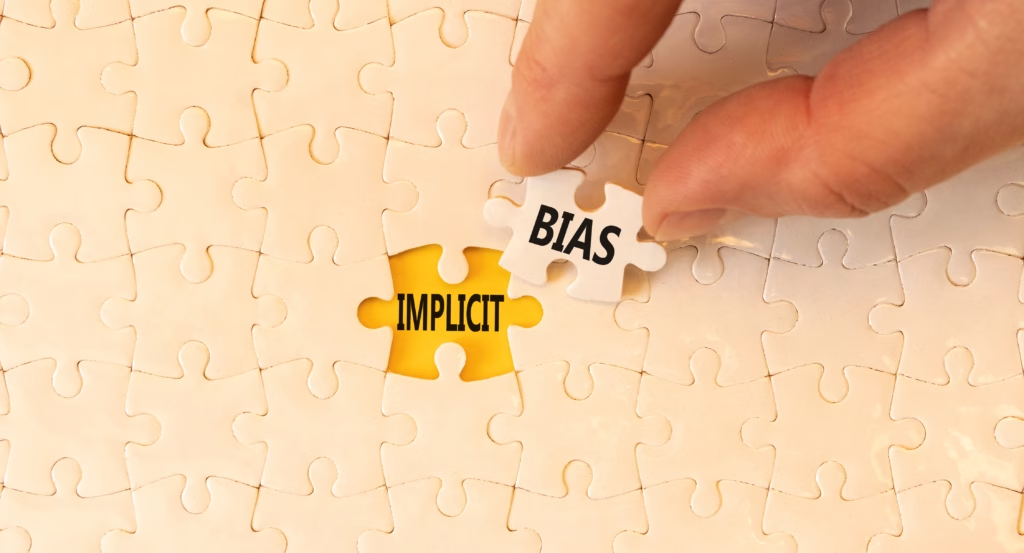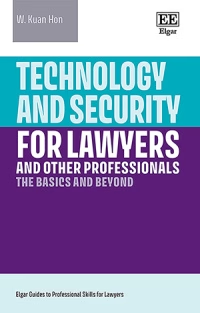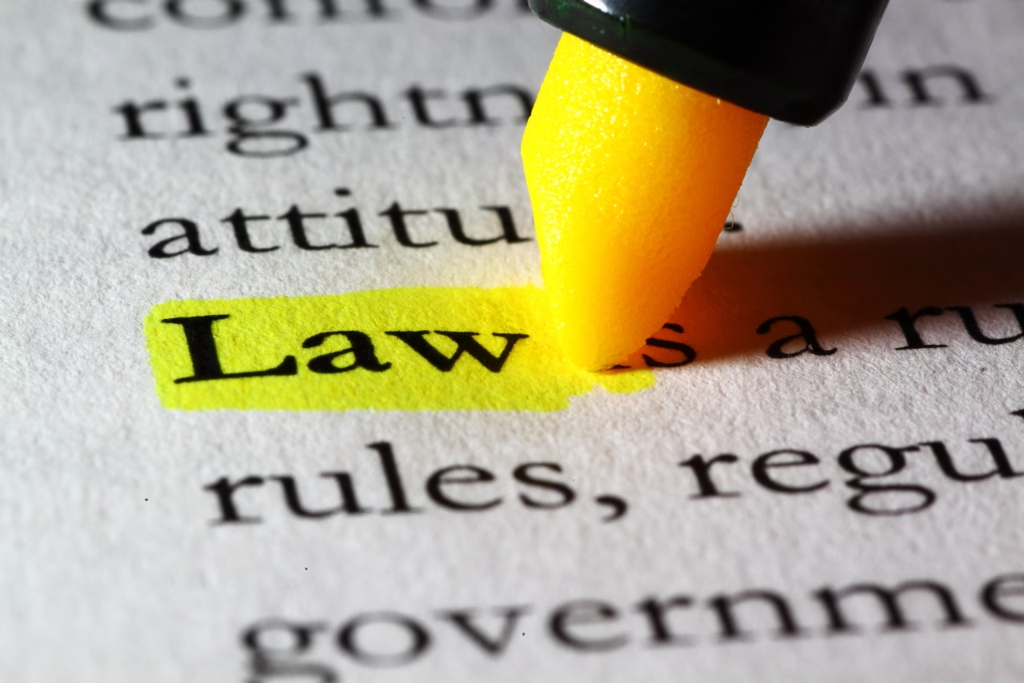After our recent podcast episode on privacy and tech laws in Latin America, two of the guests, Bárbara Lazarotto and Luz Orozco, stayed behind to share some additional insights with the host, Mauricio Figueroa. Bárbara Lazarotto Can you share a bit of the work you do at the Brussels Privacy Hub? What is like day-to-day and…
AI Data Leaks & Shadow AI: The Legal Minefield Facing UK Organisations in 2025

Camilo Artiga-Purcell, General Counsel at Kiteworks, identifies some of the ever-increasing risks and potential consequences of rushing to use AI in legal practice Picture a partner at a leading UK law firm, racing to finalise a high-stakes merger. With a deadline looming, they turn to a free online AI tool, uploading sensitive deal documents for…
Read More… from AI Data Leaks & Shadow AI: The Legal Minefield Facing UK Organisations in 2025
The (Speculative) Rise of AI Agents in Legal

Amanda Chaboryk, Chris Cartmell, and Stephanie Baker, of PwC, raise some early considerations about the seemingly inevitable spread of agentic AI into legal departments IntroductionArtificial Intelligence (AI) has played an increasingly prominent role within legal, starting as early as the 90’s, when legal databases started incorporating natural language processing to optimise search and retrieval. Leaping…
Read More… from The (Speculative) Rise of AI Agents in Legal
LLMs are Left-Leaning Liberals: The Hidden Political Bias of Large Language Models

A team from Cripps reveal the perhaps surprising results of their research in to the political leanings of LLMs. In this article, Cripps’ specialist AI and Data team unpacks the political bias in generative artificial intelligence large language models (“LLMs”). We present the available research, explain our own test results and conclude that LLMs have…
Read More… from LLMs are Left-Leaning Liberals: The Hidden Political Bias of Large Language Models
Telecoms, resilience and corporate governance risk and compliance

James Humphrey-Evans and Nedko Nedev set out the corporate risk factors associated with communications networks, including those exposed by the recent Iberian outage. Along pavements and roads in major cities, you will cross over the groundworks and chambers used by telcos for the networks we all use, just as the utility networks bring power and…
Read More… from Telecoms, resilience and corporate governance risk and compliance
Another Chinese court finds that AI-generated images can be protected by copyright: the Changshu People’s Court and the ‘half heart’ case

Chinese courts take a different approach to the issue of AI generating copyright protected images, the DLA Piper team reports. On 7 March 2025, the Changshu People’s Court (in China’s Jiangsu province) announced that it had recently concluded a case on the topical issue of whether AI-generated works can be protected by copyright. In the…
Exploring Competition in Cloud and AI Podcast: Episode 1 – The Status Quo
We have teamed up with the LIDC (International League of Competition Law) to share a series of podcasts examining some of the increasingly pressing questions around cloud computing, AI and competition law. Over seven episodes, recorded in November 2024, Ben Evans, Shruti Hiremath and guests will look beyond the current position to identify some of…
Read More… from Exploring Competition in Cloud and AI Podcast: Episode 1 – The Status Quo
US Social Media Liability: Quicksand?

Ryan E. Long warns of the US lawsuits currently targeting social media platforms The Set Up Great news! Your UK based social media dating company – “Better Than Cupid” – just got funded. It’s been launched in the US and is slated to be released in other countries. You just started celebrating. But then you…
The Drawbacks of International Law in Governing Artificial Intelligence

Mauricio Figueroa argues why we need to look beyond the conventions of international law to regulate AI Artificial Intelligence (AI) systems are being deployed across industries and sectors of the economy; it is certainly a global problem. At first glance, international law seems like an obvious way forward: a platform designed to address cross-border issues….
Read More… from The Drawbacks of International Law in Governing Artificial Intelligence
This week’s Techlaw news round-up
Online Safety Act 2023 (Commencement No 4) Regulations 2024 made The Online Safety Act 2023 (Commencement No 4) Regulations 2024 (SI 2024/1333) have been made. These Regulations are the fourth commencement regulations under the Online Safety Act 2023. They bring into force on 17 January 2025 the duties about regulated provider pornographic content in section…
Technology and Security for Lawyers and Other Professionals

The Basics and Beyond Rónán Kennedy reviews a book aimed directly at the legal professional who needs to understand the technology they advise on. Those who work in law and technology are sure to encounter some aspect of hardware or software that they do not understand, either because it is new or because they simply…
Read More… from Technology and Security for Lawyers and Other Professionals
Software Escrow – Its Evolution, Use in Legal Frameworks and The Influence of AI

Mark Ryan and Tom Sweet of SES Secure trace the evolution of software escrow and the impact of AI on its use As many readers will know, software escrow is a risk mitigation tool that safeguards the critical assets, such as software applications, organisations are reliant on. It typically involves a tri-party legal agreement being…
Read More… from Software Escrow – Its Evolution, Use in Legal Frameworks and The Influence of AI
Generative AI: Redefining Access To Justice

Amanda Chaboryk examines how policies and organisations may need to adapt if generative AI is to be used to improve access to justice. Introduction The legal field has consistently faced a growing and essential demand for innovation to tackle persistent issues related to access to justice. At a high level, the primary factors that impact access…
The SCL AI Conference: Key Takeaways
Mauricio Figueroa summarises the key points from the SCL AI Conference hosted by Herbert Smith Freehills on 8th October. Practitioners, lawmakers, academics, trainees, in-house lawyers, and civil society representatives gathered at Herbert Smith Freehills’ offices in London for the annual Society for Computers and Law AI conference. The event brought together experts to explore the…
The Procurement Act 2023 and its implications for tech procurement

The long-awaited Procurement Act is scheduled to come into force in February next year promising a more flexible regime. Professor Albert Sanchez-Graells picks out some of the challenges it will pose for those working in public-sector procurement. After a recently announced 4-month delay to its ‘go live’ date, the Procurement Act 2023 is now due…
Read More… from The Procurement Act 2023 and its implications for tech procurement
IA Before AI: Facilitating Generative AI Adoption within Legal Teams

Amanda Chaboryk and Nicholas Cook highlight the importance of reviewing your information architecture before using your data for generative AI The advent of artificial intelligence (AI), and generative AI (GenAI) in particular, has resulted in a dawning era of transformative potential in the legal domain. It has been met with a range of reactions from…
Read More… from IA Before AI: Facilitating Generative AI Adoption within Legal Teams
This week’s Techlaw news round-up
Product Regulation and Metrology Bill introduced to Parliament On 4 September 2024, the Product Regulation and Metrology Bill had its first reading in the House of Lords. The Bill aims to reform the UK’s product safety regime by addressing modern safety issues. The Bill’s second reading in the House of Lords is due to take…
AI literacy on the agenda: EU, UK and US

Tom Whittaker and Ryan Jenkins look at the increasing importance of AI literacy in the EU and more globally AI literacy in simple terms is about developing skills and understanding regarding how to develop and use AI, its opportunities and risks. Contracts, governance and internal policies may require or encourage some form of AI literacy….
The Cyber Threat to the UK’s Universities

Sachin Bhatt, our regular cybersecurity contributor, highlights the threats to our universities from malicious activity…
Digital transformation: the risks of providing non-digitally accessible products in the EU and UK

A team from Hogan Lovells consider the regulatory regimes governing digital accessibility in the UK and EU. Summary: In the era of digital transformation, the need to ensure products and services are accessible to all, including those who experience some form of disability, is greater than ever. While there is not (yet) a global uniform…
The Post Office Horizon IT Scandal: How should organisations react when IT systems go wrong?

Andrew Woolsey and Sophie Ashcroft take a fresh look at the legal issues surrounding defective software through the lens of the Post Office Horizon IT scandal…
Emerging technologies and the climate: charting a pathway to pre-emptive oversight

Once upon a time technologies like artificial intelligence and the metaverse were confined to the annals of science fiction. No longer, both innovations exist in the here and now, with vast potential to transform our world. These emergent technologies, however, are not without attributes of concern, one of which is energy consumption and the consequent…
Read More… from Emerging technologies and the climate: charting a pathway to pre-emptive oversight
Assessing Design Quality in IT Contracts

IT contracts and disputes have long concentrated on functional specifications, tests and defects to assure that projects deliver what is intended. This is only part of what is required. William Hooper examines the role of design in contract and dispute….
Who’s been regulating my AI?: Goldilocks and the House of Lords Report on LLMs and Generative AI
A team from DLA Piper dig deeper into the House of Lords report on balancing risk and innovation in AI regulation, in particular, the open source question While much attention has been paid to the finalisation of the EU’s AI Act in recent weeks, developments in AI continue at a frenetic rate. On 2nd February…
Spotlight on Bitcoin trading funds
The price of Bitcoin has climbed since the SEC allowed new trading funds. Martyna Dudek explains what’s changed and the FCA’s own moves to allow crypto trading….
5 steps to building a high performance in-house legal team
Áine Rafferty knows an in-house legal team is a critical component for many technology firms and has been recognised by industry peers for leading high performing in house technology teams. Here she provides some steers on how to make sure the team is valued by the other parts of the business. The role of the…
Read More… from 5 steps to building a high performance in-house legal team
False citations: AI and ‘hallucination’
Adrian Aronsson-Storrier and Helen Hart look at the recent case of Harber, a tax case involving fictitious case references generated by ChatGPT…
European Commission issues guidance for a safer online space for children
The Online Safety Act has been receiving a lot of media attention this week as the age verification requirements and duty to protect children have come into force. In addition Australia has announced that it is planning to ban the under 16s from having accounts on Youtube. Alongside this, the European Commission has also issued…
Read More… from European Commission issues guidance for a safer online space for children
Online age checks now enforced
Since 25 July, the provisions of the Online Safety Act 2023 requiring measures to be place to protect children have been in force. Among other things, age checks are now enforced to prevent children from accessing porn, self-harm, suicide and eating disorder content. Over the last month, the UK’s biggest and most popular adult service…
Data (Use and Access) Act 2025 (Commencement No 1) Regulations 2025 made
The Data (Use and Access) Act 2025 (Commencement No 1) Regulations 2025 SI 2025/904 have been made. The Regulations bring into force specified provisions of the Data (Use and Access) Act 2025 on 20th August 2025. They are the first commencement regulations made under the Act. Certain provisions were brought into force automatically on Royal…
Read More… from Data (Use and Access) Act 2025 (Commencement No 1) Regulations 2025 made
CMA proposes to designate Google and Apple as having strategic market status
On 23 January 2025 the Competition and Markets Authority launched two separate SMS investigations, one into Apple and another into Google, to assess their position in their respective mobile ecosystems. The CMA has now announced that it proposes to designate Apple and Google with “strategic market status” (SMS) under the Digital Markets, Competition and Consumers…
Read More… from CMA proposes to designate Google and Apple as having strategic market status
Ofcom issues six point plan for public services media
Ofcom has recommended that public service media (PSM) should be prominent on third-party websites and applications such as YouTube. PSM companies’ video on-demand players account for just 9% of all viewership, significantly less than subscription streaming services (15%) and video-sharing platforms (19%). To address the challenges for PSM, Ofcom has set out the following six-point…
Read More… from Ofcom issues six point plan for public services media
This Week’s Techlaw News Round-Up
UK law Online Safety Act 2023 (Commencement No. 6) Regulations 2025 made to repeal video sharing regime The Online Safety Act 2023 (Commencement No. 6) Regulations 2025 SI 2025/888 have been made. They are the sixth commencement regulations made under the Online Safety Act 2023. They bring into force section 210 of the 2023 Act,…
Intellectual Property Office launches consultation on Standard Essential Patents
The IPO is consulting on potential measures to address challenges in the UK’s Standard Essential Patents (SEPs) ecosystem. A patent that protects technology which is essential to implementing a technical standard (such as 5G) is known as a Standard Essential Patent (SEP). However, there are well-known problems within the UK’s SEP ecosystem that may create…
Read More… from Intellectual Property Office launches consultation on Standard Essential Patents
Ofcom issues updates under Media Act 2024
Ofcom has issued a consultation and a series of statements under the Media Act, which may be of interest to tech lawyers. Designation of television selection services Ofcom is consulting on its provisional view of the television selection services it proposes should be designated under the Media Act 2024. It says that it is critical…
Product Regulation and Metrology Act receives Royal Assent
The Product Regulation and Metrology Act has received Royal Assent. Among other things, it aims to boost powers to tackle unsafe products which are sold online. The Act includes measures to hold online marketplaces to account. One example of the safety concerns it aims to resolve concerns fires caused by lithium-ion batteries used in e-bikes….
Read More… from Product Regulation and Metrology Act receives Royal Assent
Competition and Markets Authority publishes annual report for 2024-25
The Competition and Markets Authority (CMA) has published its annual report for 2024-25 setting outs its achievements and activities in the past year. The Digital Markets, Competition and Consumers Act 2024 (DMCC Act) has largely come into force, giving the CMA new powers to regulate digital markets as well as competition and consumer laws which…
Read More… from Competition and Markets Authority publishes annual report for 2024-25